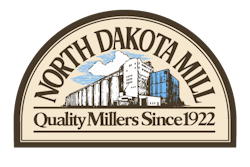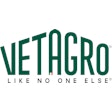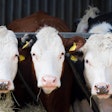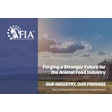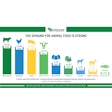
With many aspects of life on pause over the last 12 months due to the pandemic, two-thirds (67%) of Americans have used the opportunity to adopt or purchase a dog, according to a new survey by ADM, a global leader in human and animal nutrition.
As owners spend more time at home, many have found themselves paying closer attention to their new pup’s health. Sixty-four percent of survey respondents said their attention to their dog’s health, wellness and overall development has increased over the last year — and of those people, 24% said it has “dramatically increased.”
“Many Americans have turned to their dogs for companionship during the pandemic, so it’s no surprise we’ve been more vigilant about caring for our furry friends,” said Ricardo Rodriguez, a Doctor of Veterinary Medicine and Technical Marketing Manager for ADM’s Animal Nutrition Business. “However, as a result many owners are realizing that they need more support to provide adequate care.”
The Education Gap in Nutrition Among Dog Parents
While owners have been keeping a closer eye on their dogs, the study found the pandemic hasn’t necessarily encouraged pet parents to create good habits.
- Two in five respondents (42%) say their pup’s nutrition brought on challenges over the past year, whether it be allergies, picky eating habits, dietary issues or more. This percentage is even higher for new dog owners at 50%.
- Less than half (43%) of survey respondents say the nutritional value of the dog food they buy is ‘somewhat important’ and only 16% said it is ‘extremely important.’
- Additionally, the study finds less than half of owners prioritize important factors, like food quality and ingredients (48%), allergies and food sensitivities (43%), and their dog’s weight (42%) when selecting products.
- Respondents say the pandemic has resulted in irregular feeding schedules (47%), more snacks given daily (42%) and more frequent table scraps (12%).
- Half (49%) of respondents surveyed say they are concerned that being away from home may exacerbate behavioral problems, such as crying, whining and barking, followed by health issues (41%) and separation anxiety (41%).
- These worries are heightened for new pet owners, with 45% concerned about potty training and 47% concerned about separation anxiety, compared to 18% and 26% of pre-pandemic dog owners respectively.
This may be because owners don’t know what to prioritize when evaluating dog food.
In addition to not purchasing the right food, many owners are also struggling to build proper nutritional habits for their dogs.
“Although many of us have embraced a flexible schedule during the pandemic, it’s essential for dogs to follow a daily routine to maintain a healthy body and mind,” said Rodriguez. “This includes eating nourishing, healthy meals on a regular schedule and receiving the appropriate amount of exercise for their breed and age. It’s important for owners to work with their vet to identify what’s best for their dog.”
Concerns and Priorities for Post-Pandemic Life
With a return to normal work schedules and daily life now more imminent, dog owners are most concerned about the impact these lifestyle changes will have on their pup’s behavior.
As a result, respondents say they plan to seek outside support from a day care program (21%), dog walker (24%), or dog training classes (28%).
Unsurprisingly, more than one-third (35%) of pandemic pup owners are planning to hire a professional trainer to address behavior problems when they go back to work, compared to just 10% of pre-pandemic pet parents.
“Over the last year dogs – especially new pups – have become used to constant companionship, so as we start to leave the house more it may be a traumatic transition for our pets,” said Rodriguez. “To prepare for this, owners should turn to their vet to identify the proper training and health and wellness solutions they need to make the return to normalcy as smooth as possible for both human and canine.”
To learn more about ADM’s Animal Nutrition business, visit admanimalnutrition.com/pet.
Methodology
ADM surveyed 2,004 U.S. dog owners ages 18 to 55 and over from March 3, 2021 to March 6, 2021.





